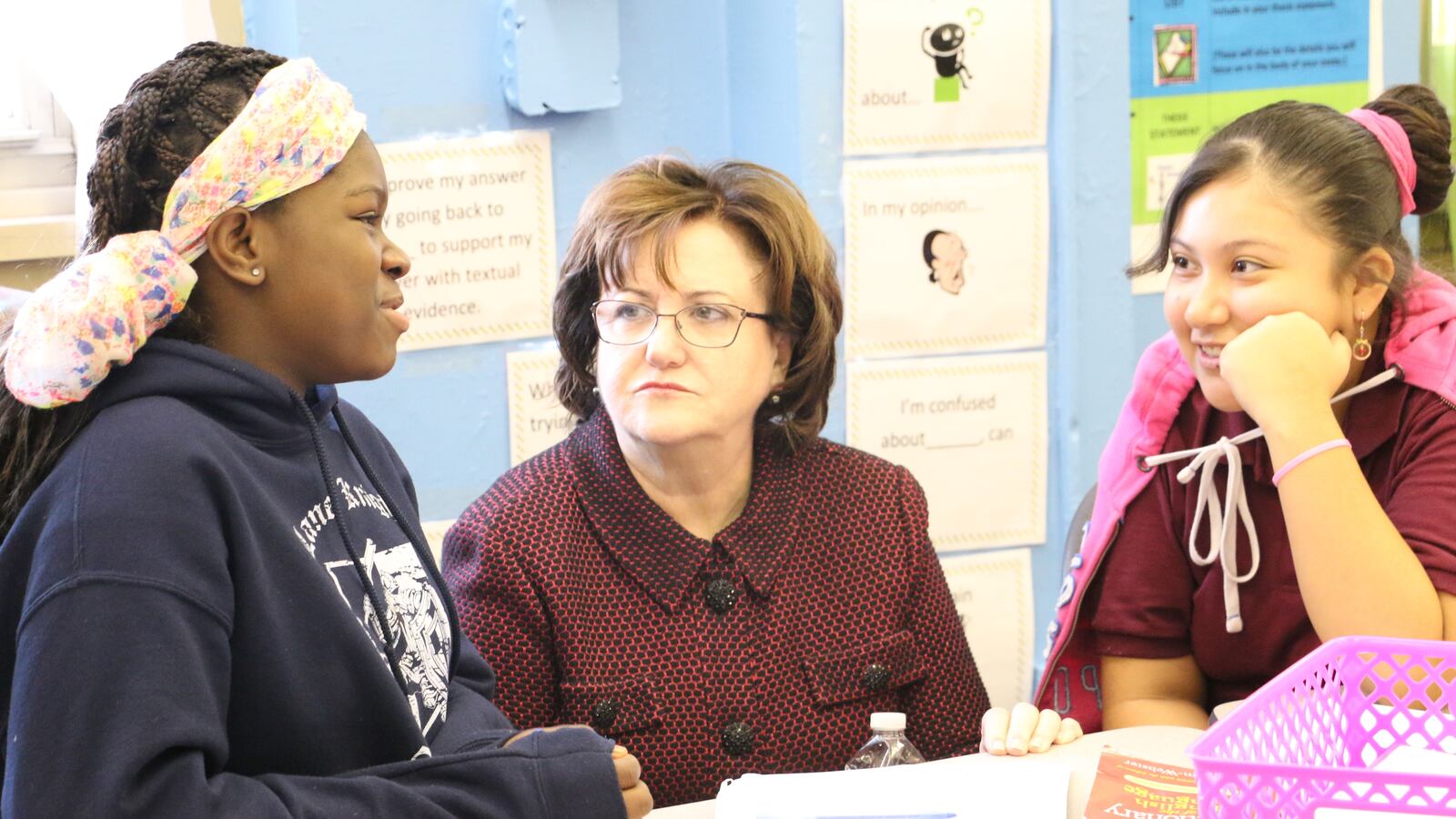New York state’s top two education leaders are on the same page. They promise.
One day after Regents Chancellor-elect Betty Rosa made waves by saying she would opt her own child out of state tests, the state’s education commissioner told regional superintendents that the two had had a “productive conversation” about assessments in an email outlining their “shared view” on state tests.
Commissioner MaryEllen Elia’s message indicates her desire to reassure educators that the state’s top education officials are united in their quest to revamp state assessments, which one in five eligible students opted out of last year. Meanwhile, Rosa said in a radio interview that she is on board with how Elia has publicized new changes to those tests.
“It’s not a surprise to anybody that the commissioner and the department would want to refocus people’s attention,” said Jay Worona, the deputy executive director for the state’s School Boards Association.
Worona thinks the two women are more unified on test policy than the headlines from Monday’s press conference have lead people to believe. But Elia has said it is “unethical” for educators to encourage the testing boycott — though Rosa seemed to endorse the impulse earlier this week.
Elia has also been on a campaign to inspire test-taking. She often emphasizes changes the department has made to the tests in the last year, including giving students unlimited time to complete the exams and shortening them altogether.
Rosa refused to say she wanted to see the number of opt-outs decrease, but complimented Elia’s work during a radio interview this week.
“I think that this commissioner, in a short period of time, has done an incredible job,” Rosa said to WCNY’s Susan Arbetter.
The Board of Regents oversees the state education department, which means Rosa and Elia will have to work closely to overhaul the state’s learning standards and assessments. In her email, Elia said she and Rosa agree they must continue to ensure that assessments accurately measure student learning and make sure the tests are not too long or too stressful.
It also reflects a note of compromise. Elia gives a nod to parents’ right to have their children boycott the tests, but in the same breath outlines the changes that the state education department has already made.
“The decision of whether a student should take the State assessments is ultimately for that student’s parent or parents to make. But in making that decision, we want to be certain that everyone has all of the information they need to make an informed decision,” the email reads.
The email was sent to BOCES district superintendents, who sometimes act as liaisons between the state education department and school districts. Many of those officials shared the information with other superintendents and principals, state officials said.
It remains to be seen whether opt-out organizers, who have endorsed and celebrated Rosa, will continue to support her if she remains satisfied with the commissioner’s positions. They have already dismissed Elia’s testing changes as meaningless tweaks.
But so far, neither their disdain for Elia nor their confidence in Rosa has diminished.
“Under Dr. Rosa’s leadership, Commissioner Elia has an excellent opportunity to regain the trust of both parents and educators,” Bianca Tanis, an elementary school special education teacher and co-founder of the New York State Allies for Public Education, wrote in an email.
Rosa will also have to work with the city’s schools chancellor Carmen Fariña, who said earlier this year she is “not a fan” of opt-out. Education department officials said that Fariña has been in touch with both Elia and Rosa since Rosa’s election, and that the city schools chancellor looks forward to working with them in the future.

